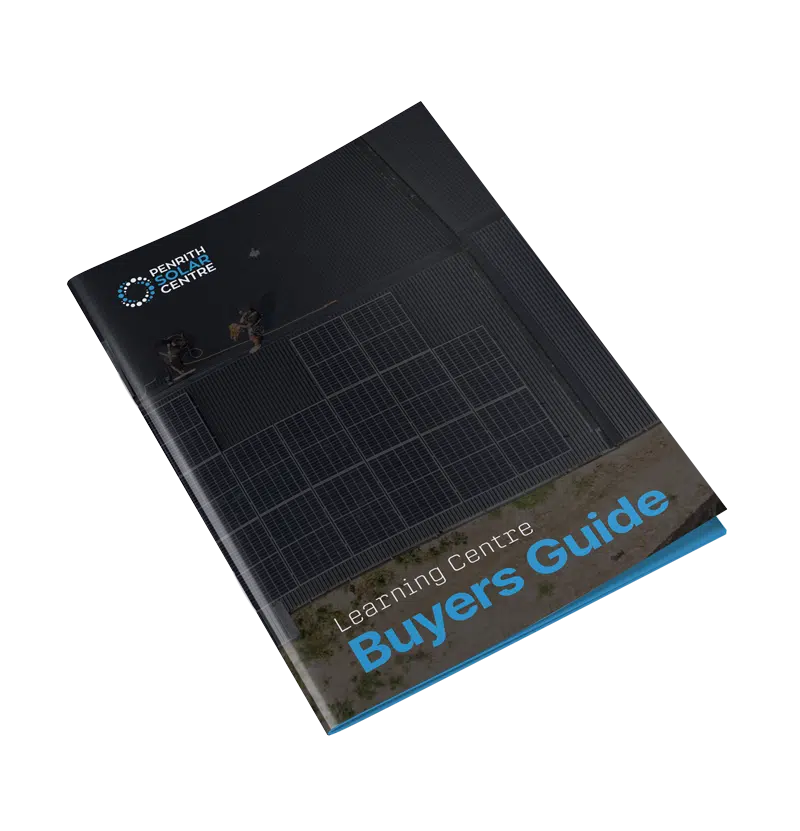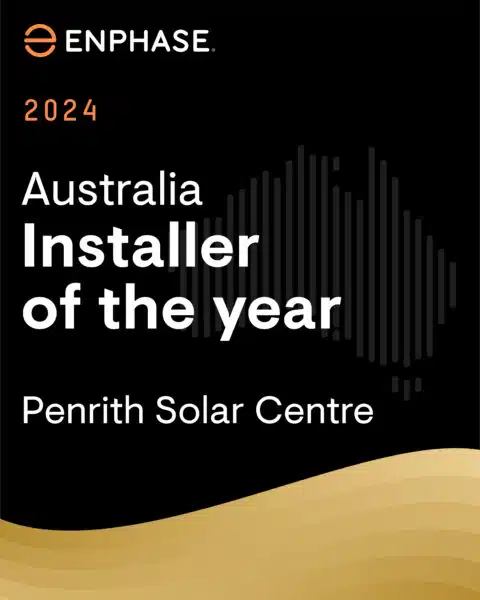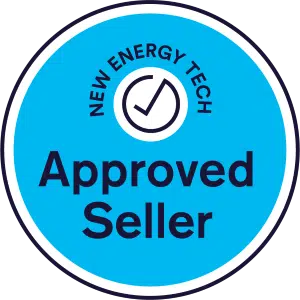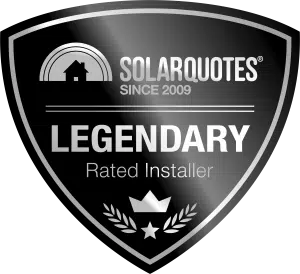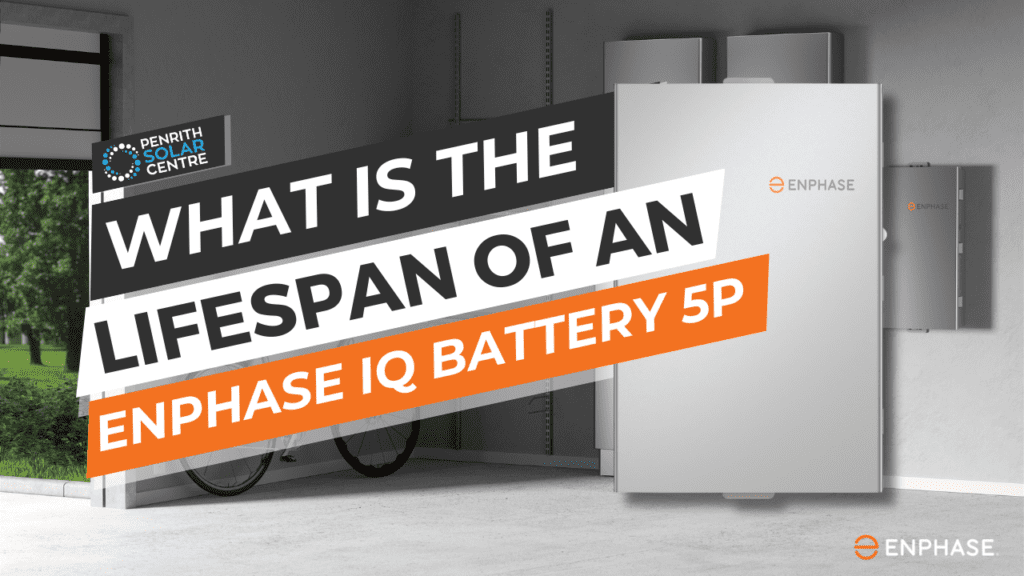
How long do these batteries last? We get this question a lot, and it’s a great one. A solar battery is a significant investment, and you should know exactly how long it will last. But the answer can be a bit technical if you aren’t familiar with the solar batteries.
The short answer is this: it depends.
No one wants to hear that. After all, we’re talking about sustainable energy technologies — actual science — where things are quantifiable. Unlike English classes where the correct answer is always “it depends.”
At Penrith Solar Centre, we install two brands of solar batteries and the Enphase IQ Battery 5P is one of them. We’re experts when it comes to installing Enphase batteries. We understand that it can be hard to briefly summarize their lifespan. There’s a lot to look at.
We want you to be an informed shopper and because we value your time, you’re going to get an transparent look at what determines the life expectancy of an Enphase battery.
In this article, you’ll learn the following:
- What is an Enphase IQ Battery 5P?
- What Determines the Lifespan of an Enphase IQ Battery 5P?
- How Do You Know When It’s Time to Replace an Enphase IQ Battery 5P?
By the end of this article, you’ll have all your Enphase battery lifespan questions answered.
What Is an Enphase IQ Battery 5P?
Enphase Energy, an American company known for its microinverter technology, introduced the Enphase IQ Battery range in North America a few years ago, and now it’s available in Australia. This battery is an all-in-one AC-coupled unit that uses microinverter technology inside of it to increase efficiency.
The specs are as follows:
- Continuous power rating: 3.84kW
- Peak power rating: 7.68kW
- Energy capacity: 5.0kWh
- Round-trip efficiency: DC in 96% and AC out is 90%
- Dimensions: 188 mm x 550 mm x 980 mm
- Weight: 66.3 kg
Enphase’s battery is unique compared to all batteries on the market because it contains six 680W microinverters inside, making it charge and discharge faster than other batteries. Charge and discharge rates measure how quickly power goes into or out of the battery (we’ll get to that a little later).
The battery’s microinverters are IQ8D-BAT microinverters. The distributed architecture works in this way: if one of the six encased microinverters stops working, you’ll still have over 80% of your total battery charge and discharge capacity until it gets fixed under warranty. These microinverters work to ensure your power supply remains stable even if one of them has a hiccup.
We’ve done a review of the Enphase IQ Battery 5P which is loaded with more specific information about the battery. Please feel free to check it out for more information on the specs and features of the battery and come back here when you’re done!
What Determines The Lifespan Of An Enphase IQ Battery 5P?
Temperature Considerations: Similar to human beings, a battery operates at its optimal efficiency when it’s not exposed to extreme temperatures. The ideal temperature range is similar to our comfort zone, typically falling between 20 to 25ºC.
However, in many regions of Australia, where temperature fluctuations can be quite dramatic, solar batteries can be significantly affected. The Enphase IQ Battery 5P will have a longer lifespan in areas with milder, temperate climates or when they are kept in temperature-controlled settings, like a garage.
When a battery is exposed to temperatures outside the recommended range, it triggers chemical reactions within the battery that speed up the degradation of its components. This, in turn, leads to a swifter decline in capacity, ultimately resulting in a shorter overall usable lifespan.
And even though cold extremes aren’t an issue in Australia (well, maybe in Tasmania), subjecting a battery to frequent extreme cold can also have detrimental effects on its efficiency. Prolonged exposure to cold temperatures can contribute to the long-term degradation of the battery’s capacity and its overall lifespan.

Number of Charge and Discharge Cycles: It’s not coincidental that many manufacturer warranties are tied to the quantity of charge and discharge cycles a solar battery undergoes during its lifetime. A cycle, in this context, is when the battery completely charges up and then completely empties its energy (discharge).
Most warranties (more on those later) for solar batteries are determined by years of use or the number of cycles, whichever comes first. Each cycle plays a role in gradual wear and brings about chemical changes that ultimately lead to a reduction in capacity over time.
The more often your Enphase IQ Battery 5P cycles, the faster it will degrade.
Lithium-ion batteries (which Enphase is) exhibit a higher tolerance for both the number of cycles and the depth of discharges. Regardless of the battery chemistry, you can extend its longevity by minimizing the frequency of cycles through efficient energy management.
Depth of Discharge: The Depth of Discharge (DoD) measures how much a battery is used relative to its total capacity.

Manufacturers often incorporate DoD-related suggestions for your battery in their literature, website, and app. It’s helpful to reference these suggestions when programming the battery using the Enphase Enlighten App on your phone or browser.
For example, you can tell the battery when to recharge, leaving an amount of energy in reserve before depleting the whole thing. The DoD for the Enphase IQ Battery 5P is 100%, so you can drain it all the way if you like.
The extent to which a battery is discharged can impact its lifespan by influencing the stress imposed on its chemical composition. Shallower discharges, where the battery is not fully depleted, result in slower capacity degradation and an overall longer battery life. Also, what if the electrical grid goes down after you’ve depleted your battery fully? It’s a good idea to always program a bit of energy in reserve to see you through such situations.
What Are Your Energy Consumption Patterns and Needs? This question is really one of the most important factors when considering the lifespan of your battery. How are you using it? Everyone’s needs for electricity are different. Your battery’s lifespan will be different from your neighbours because your energy consumption patterns are unique.
- When are you home? Is the sun up?
- What are you powering? Is it summertime? Do you have an air conditioner?
- How many people are in your home and what are their habits?
There are quite a few factors that affect your usage patterns. These factors will affect how often your solar battery charges and discharges and how efficiently it performs.
If you’re interested in learning a bit more about the importance of monitoring and programming your energy, you might want to check out the following article titled, What is Consumption Monitoring?
Ready to go solar? Click here.
How Do You Know When It’s Time To Replace The Enphase IQ Battery 5P?
Once again, it depends.
Every solar battery on the market has a life cycle. They degrade over time: they hold less energy, and their performance is diminished. And one day, like Charlie B. Barkin, your solar battery will die, and it will go to battery heaven.
When you’re looking at the end of a battery’s life, there are going to be some considerations that will be different for different solar systems.
If your system is off-grid, it’s not connected to a local power company. When a solar system is off-grid, it’s pretty easy to determine when the battery is at the end of its life: when it stops working well enough to suit your energy needs.
Most off-grid systems are in rural areas where the solar system with a battery is the primary energy source for your home or business. Eventually, that battery will no longer be able to accommodate your energy consumption needs and will need to be replaced.
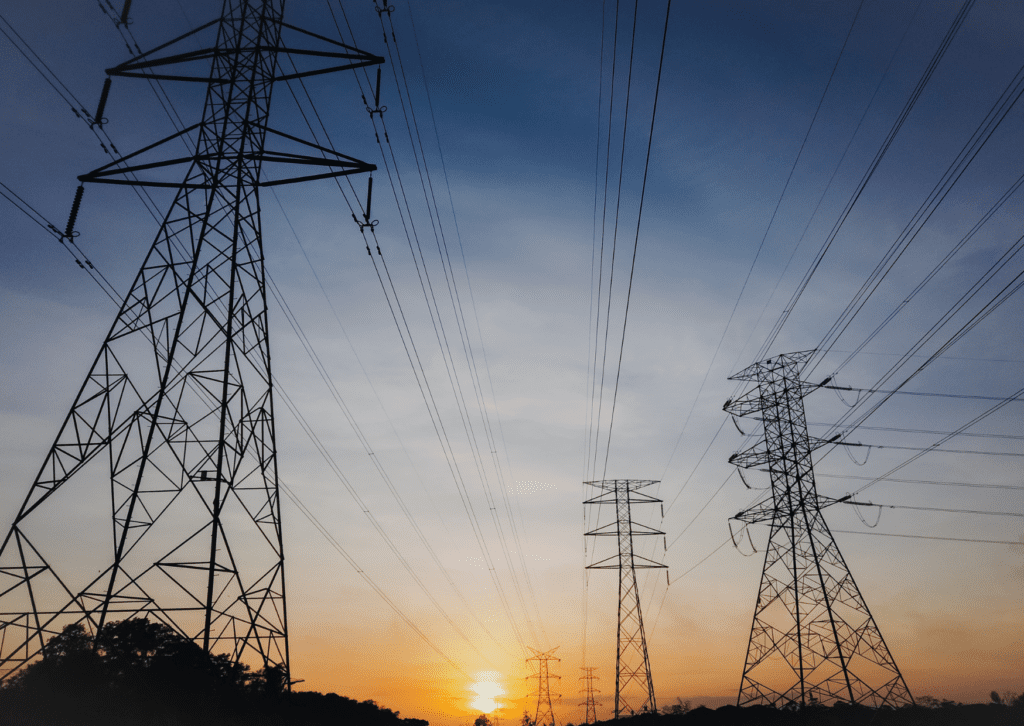
If your home or business is connected to the grid, there’s some wiggle room in determining the lifespan of an Enphase IQ Battery 5P because some functions will still be operational for your solar system. Even if the battery has gone through significant degradation and is past its warranty lifespan.
For example, if your solar battery can still hold, say, 42% of its original capacity, it can still perform some essential backup functions during power outages.
The manufacturer’s warranty period is one of the best tools to estimate the end of life for your solar battery. Enphase has one of the best warranties for a solar battery on the market right now. It covers 15 years or 6,000 cycles, whichever comes first.
A cycle is the full powering up of a battery to full capacity and the complete depletion of all electricity in the battery. This usually happens daily in most homes, but that depends on your energy consumption patterns.

Most warranty periods are ended by the manufacturer because the degradation is significant enough to affect the performance of the battery. When the warranty period ends after 15 years for an Enphase battery, the storage capacity will have been degraded to around 60% of its initial capacity.
Speaking of the warranty, there is something that we need to mention: VPPs (virtual power plants). A VPP is a system where a company, a VVP, sets up a network to use participants’ solar batteries to redistribute electricity at different times of day or night.
The company controlling the VPP controls your solar battery during periods of high demand for electricity when prices are higher (evening and nighttime). They then release that stored energy to relieve the grid. Electricity is less in demand at other times, like midday, and then the VPP instructs the connected batteries to charge.
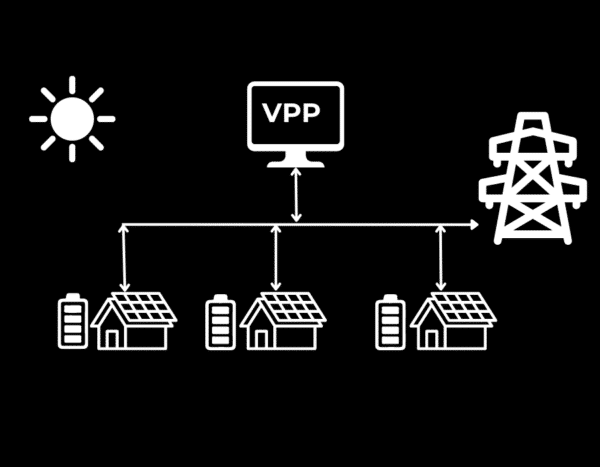
You give up control of your battery to a company to relieve the grid. In exchange for that, you receive benefits like an initial reduction in battery cost, a more generous solar feed-in tariff, or a combination of both. In some cases, they may pay you a premium of $0.60 per kWh, and all you’ve done is store it for a period of time and give it right back to the grid.
It’s a pretty good deal for some battery owners and it’s not entirely awesome for others. It all depends on your needs and consumption patterns. The VPP will increase the charge and discharge cycles your battery goes through daily, potentially wearing it down faster. For most residential solar battery systems, the battery charges and discharges completely once a day. Be sure to read the fine print on your Enphase warranty before signing up for a VPP.
The symptoms associated with a solar battery reaching the end of its life can vary based on factors like its chemistry, design, and usage patterns. Below, we’ve outlined some common indicators that may suggest an Enphase IQ Battery 5P in a home energy storage system is approaching the end of its operational life:
Reduced Energy Capacity: One of the primary signs of an aging solar battery is a decrease in its energy-holding capacity, which we mentioned above. You might notice that it can store less energy than it once did, resulting in shorter periods of energy discharge.
More Frequent Recharging: As the battery’s capacity diminishes over time, it may need more frequent recharging to maintain its previous level of performance. This can come from solar panels or the grid.
Increased Heat Generation: As batteries age, they may have increased heat generation when they charge and discharge. If you notice that the battery becomes excessively hot during normal operations, this could be a sign of degradation.
Unplanned Shutdowns: A battery nearing the end of its life may experience unexpected shutdowns. This can be especially noticeable during periods of high energy demand when the battery struggles to provide the required electricity.
Battery Management System (BMS) Alerts: Most solar batteries come with some form of a Battery Management System (BMS). It’s an app that’s designed to monitor the health of the battery. Consistent alerts from the BMS regarding battery-related issues are a signal that the battery is nearing the end of its useful lifespan.
If you keep an eye on your Enphase IQ Battery 5P, you can detect most of these signs pretty early on. Sometimes the battery just needs a little maintenance, but sometimes it’s an early signal to get a new one.
If you’re interested in learning a bit more about VPPs, you might want to check out the following article titled, What is a Virtual Power Plant (VPP)?
The IQ Battery Lasts, Come Cell or High Water
By now, you should be better informed about the lifespan of an Enphase IQ Battery 5P. It’s as vibrant and reliable as Nathan Cleary in the 2023 NRL Grand Final, and like Cleary, will have a long and storied career (battery lifespan).
Exactly how long this battery lasts depends on a variety of factors. Things like usage patterns to temperature extremes will wear it down more quickly. If properly cared for, Enphase batteries might even see a full second decade of operation.
At Penrith Solar Centre, we work with you to find the best energy storage solutions for your home or business, which includes helping you understand how long you can depend on your Enphase battery. You can count on us to see things through to the end – whether it’s supporting the pride of the Penrith Panthers or the lifespan of your battery.
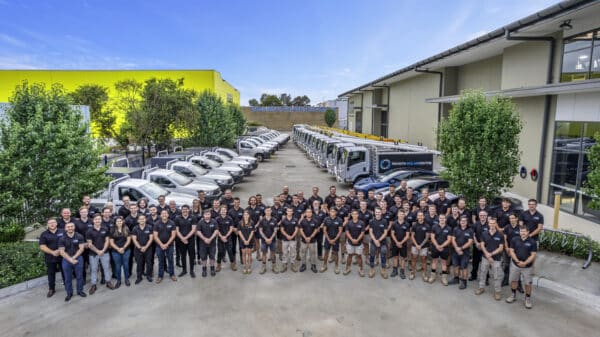
Now that you’re well-versed in the specifics of Enphase batteries, it might be time to learn a bit about how much the Enphase IQ Battery 5P costs.
